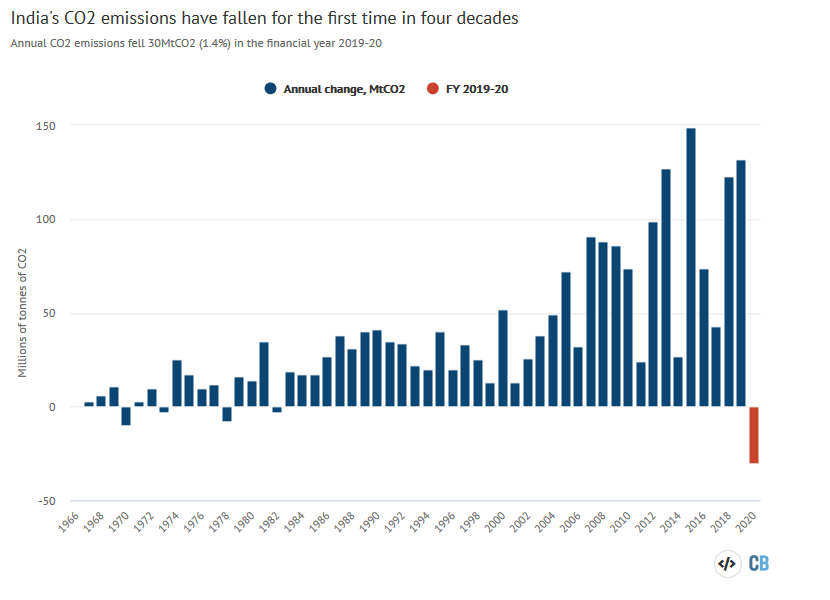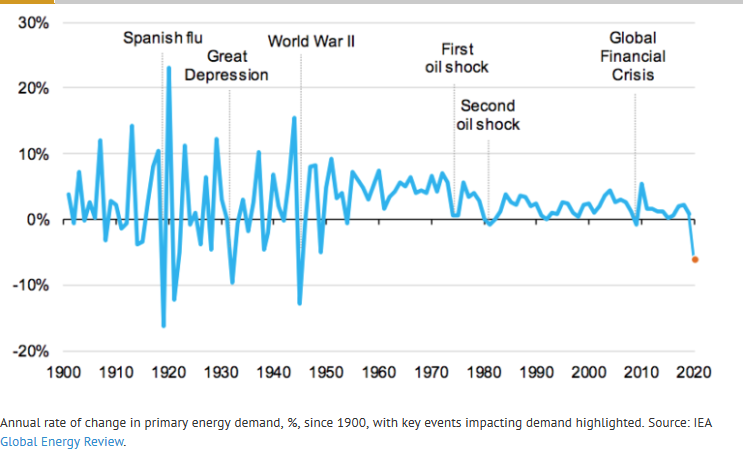For the first time since 1982, India’s CO2 emissions have fallen. The lockdown from the coronavirus pandemic was the tipping point of something already happening.
In an analysis by Carbon Brief, a study found that India’s carbon dioxide emissions had fallen 15% in March and were likely to have fallen by 30% in April.
Almost all of the drop-off in power demand was from coal-fired generators shutting down or running less.
Demand for coal has been declining since early 2019. Add in two more factors: the impact of COVID-19 and the fact that oil consumption was down 18% year on year in March 2020.
These statistics paint a clear picture that India is slowly waking up out of its smog-filled headspace. In contrast, the supply of energy from renewables has increased and has held up through the pandemic.
This shows that renewable energy could become a new normal as fossil fuels start to phase out. Bring on the pandemic and suddenly we see a major drop in CO2 emissions. This is a good thing for our air and our climate.
Analysts do warn that this decline will not last. Many think that when the pandemic is over, emissions will soar again due to people “going back to normal.”
However we hope that –
- Post-crisis economic stimulus could be directed towards reinvigorating the country’s renewable energy program.
- Experience of exceptional air quality could add momentum to efforts against air pollution, resulting in strengthened targets and standards.
To sum up, due to an economic slowdown, renewable energy growth and the impact of Covid-19 have led to the first year-on-year reduction in India’s CO2 emissions in four decades.
Reference- Carbon Brief Report, BBC, Clean Technica, Economic Times










